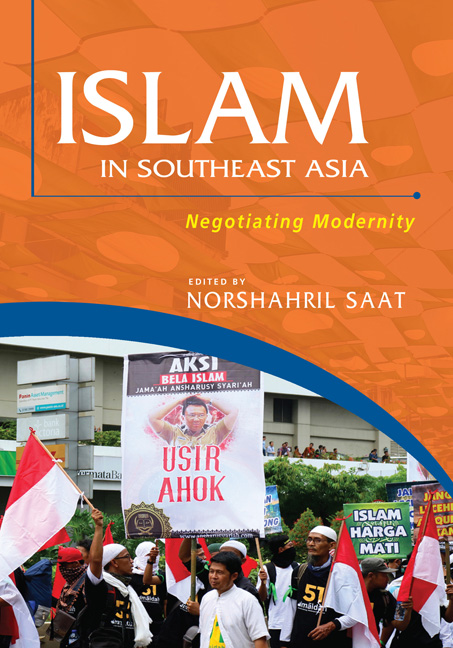Book contents
- Frontmatter
- Contents
- Preface
- About the Contributors
- 1 Introduction
- Section I Malaysia
- 2 Emergence of Progressive Islamism in Malaysia
- 3 Competing Discourses Among Malaysian Muftis: Still a Case of Arabization?
- 4 The Riyal and Ringgit of Petro-Islam: Investing Salafism in Education
- Section II Indonesia
- Section III Singapore
- Index
4 - The Riyal and Ringgit of Petro-Islam: Investing Salafism in Education
from Section I - Malaysia
Published online by Cambridge University Press: 08 June 2019
- Frontmatter
- Contents
- Preface
- About the Contributors
- 1 Introduction
- Section I Malaysia
- 2 Emergence of Progressive Islamism in Malaysia
- 3 Competing Discourses Among Malaysian Muftis: Still a Case of Arabization?
- 4 The Riyal and Ringgit of Petro-Islam: Investing Salafism in Education
- Section II Indonesia
- Section III Singapore
- Index
Summary
Quietist Salafis, advocating loyalty to Muslim rulers and critical of both jihadis and the Muslim Brothers, have been depicted as Saudi exports in a number of contexts. They have maintained strong connections with Saudi state religious institutions and received significant funding through the patronage networks of prominent Saudi clerics, i.e. ‘Abd al-’Aziz bin Baz, Muhammad al-‘Uthaymin and Salih al-Fawzan. The Islamic University of Medina has long been considered as the most prominent teaching institute of this branch of Salafism. Rabi’ al-Madkhali, who was affiliated to the Islamic University until the mid-2000s, has emerged as the most influential and yet uncompromising figure of quietist Salafism. While not being at the core of the Saudi state's religious apparatus, he has managed to gain followers around the world, including Europe. The Internet has rapidly become a prominent tool for broadcasting this religious doctrine beyond the borders of Saudi Arabia (Bonnefoy 2013, p. 2).
In 1961, many students from Malaya (before it was named Malaysia) enrolled into the newly established Islamic University of Madinah (Saudi Arabia) to pursue an Islamic studies degree. Fifty years later, more than 500 Malaysians have graduated from this university (Mohammed 2014). Scholars have argued that the Islamic University of Madinah is the primary exporter of Wahhabi ideology, and has produced Salafi-inclined theologians, who later promoted the ideology throughout the world. This chapter examines the extent of Saudi involvement in Malaysia's religous education. It argues that the Saudis have pumped in huge amounts of resources, and this comes at a cost to the country's religious discourse: the promotion of Wahhabi-Salafi ideas, which are puritan, and not in-sync with how Islam is understood in Malay society for centuries. To examine this Wahhabi Islam influence on Malaysian religious discourse I will apply the forensic theology approach. This approach will be elaborated later.
Among the famous graduates from the Islamic University of Madinah are Azwira Abd Aziz, currently Head of the Al-Quran and Sunnah Department in the National University of Malaysia, and Fathul Bari Mat Jahya, an executive committee member in UMNO's youth wing (Malaysiakini 2009; Al-Ghari 2011b, pp. 139–40; Bernama 2013a).
- Type
- Chapter
- Information
- Islam in Southeast AsiaNegotiating Modernity, pp. 63 - 88Publisher: ISEAS–Yusof Ishak InstitutePrint publication year: 2018

